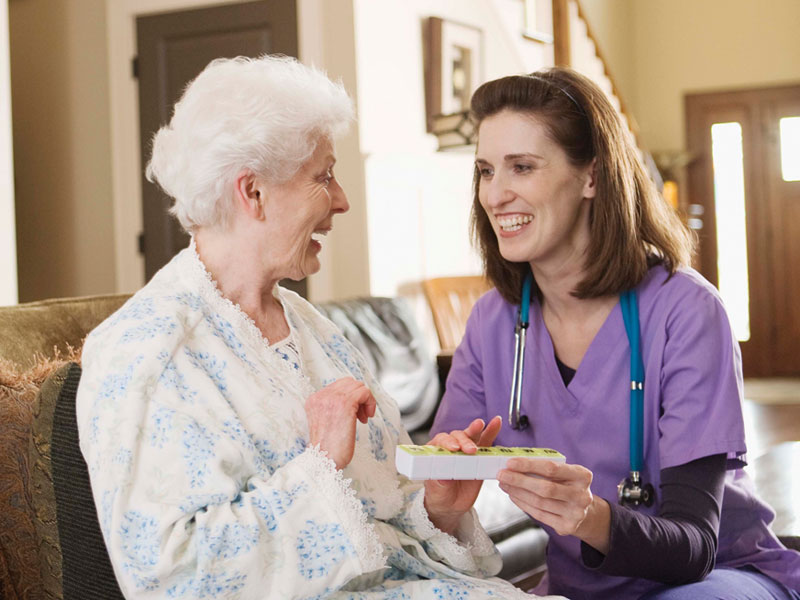Newly released data from a ground-breaking study by the National Institutes of Health show that a diet of vegetables, fruits, nuts, whole grains, olive oil and fish (and less red meat, processed meat and butter) help people live longer with fewer cases of heart disease and cancer.
It's the cancer findings that are particularly interesting because we're always hearing conflicting reports about what and what not to ingest to lower our cancer risk. Coffee is bad, coffee is good. Alcohol is bad, alcohol can be good. Fats are bad, some fats are good. But the NIH study (following half a million AARP volunteers over the age of 50, beginning in 1995) has some definitive guidelines for us now.
1. Evidence does link red meat to increased cancer risk, especially cancer of the colon. Pork and lamb are included in the "red meat" category. Apparently it's the actual make-up of meat (and possibly its high iron content) that is troublesome. Pan frying or grilling may cause carcinogens to form. The study suggests consuming no more than 18 ounces of cooked red meat a week.
2. Bacon (everyone's favorite food!) and processed meats (hot dogs, lunch meats, salami, etc.) may raise cancer risk because of their high concentration of nitrites (preservatives). Should you avoid these foods? Probably.
3. High alcohol consumption increases cancer risk in men and women, especially in the colon and liver. Any level of alcohol, according to Alice Bender, registered dietitian with the American Institute for Cancer Research, can increase breast cancer risk for women. Although for some women that increase in risk can be very small.
4. On the bright side, the NIH-AARP study found that men and women who drank four or more cups of coffee a day had a lower risk of colon cancer than those who didn't drink coffee at all. The reason isn't totally clear since there are about 1000 compounds in coffee, and they have yet to research them all.
5. There is mounting evidence that a diet rich in fiber from whole grains can help protect against cancer. Women and men who ate the highest amount of dietary fiber were less likely to die from any cause. And the study also found a link between fiber and a reduced risk of cancer death in men. Also, fiber from whole grains has more protective qualities than fiber from fruits and vegetables.
6. For cancer prevention, dietitian Alice Bender recommends that you dish up two-thirds of your plate with "plant-based" foods--vegetables, beans, whole grains and nuts--and no more than a third with animal-based foods such as chicken, seafood, lean beef or low-fat dairy products. And don't worry about pan frying or grilling vegetables: carcinogens aren't formed when veggies are exposed to high heat.
7. Blueberries and other fruits help protect against mouth and neck cancers. Tomatoes and tomato sauces protect against prostate cancer (something researchers have suspected for some time).
8. At this point, there is not enough evidence to say that dietary supplements (vitamins) reduce the risk of cancer the way fruits, vegetables and grains do.
9. About 1/3 of all cancers can be prevented if people maintain a healthy weight, eat a plant-based diet and get regular exercise.
Looking over the above 9 recommendations, it doesn't seem all that hard to lower our cancer risk as we age. But changing ingrained lifestyle habits can be especially difficult if we've spent years eating red meat, bread made from processed white flour, and sitting on the couch whenever we got the chance.
Now that we know there is a link between certain cancers and certain food and lifestyle choices, maybe we can begin to make some changes. Start with small changes. Eat a salad or a vegetable soup for lunch instead of a burger. Start buying whole wheat bread (or a gluten-free, high fiber variety). Go on-line and check out interesting fruit and veggie recipes that sound good to you. Drink more coffee.
Look at it this way: When you opt for better diet and lifestyle choices, you are nurturing yourself. Whether you're 50 or 80, you are helping yourself feel better, live a little longer and enjoy more of the experiences of a happy old age.
For more on the NIH-AARP study, check out the December 2012 "AARP Bulletin" or go to aarp.org/bulletin
